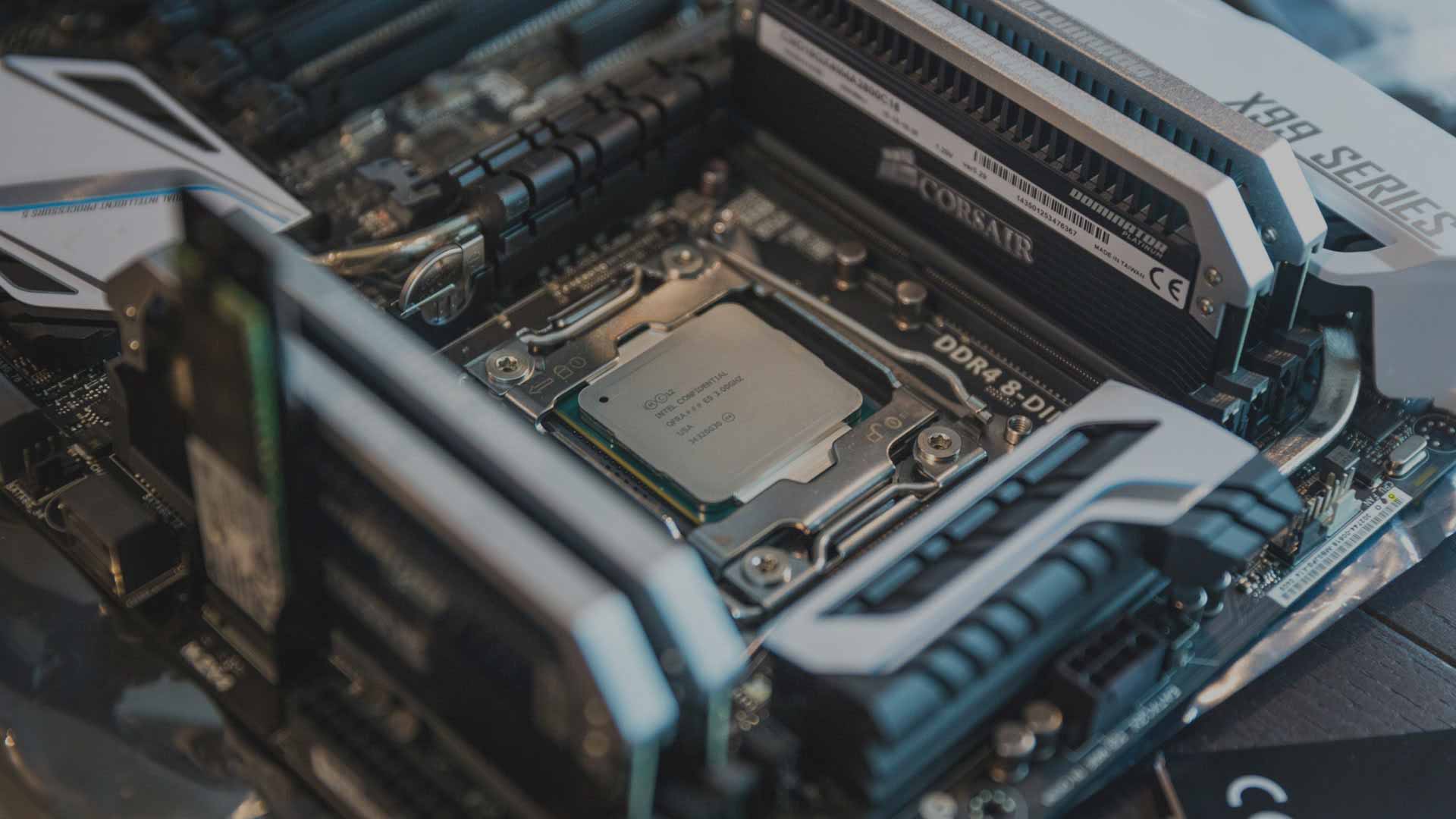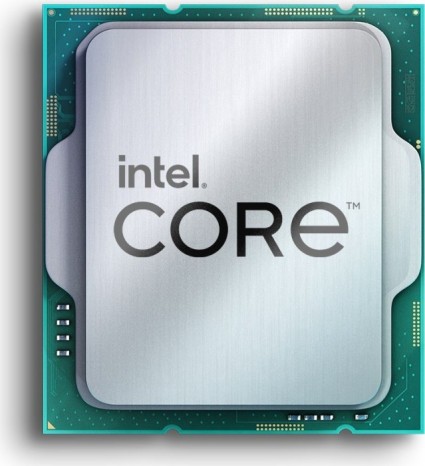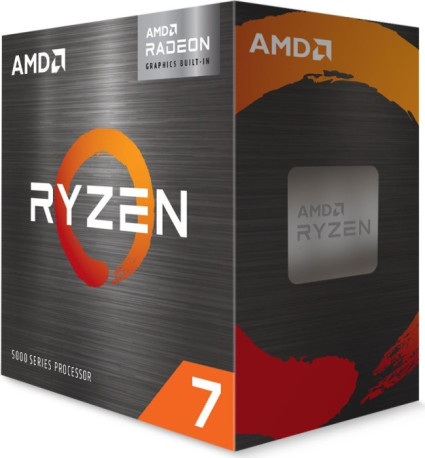
Intel Core i5-14400 (B0) vs. AMD Ryzen 7 5700G
In diesem Vergleich von Intel Core i5-14400 (B0) versus AMD Ryzen 7 5700G vergleichen wir die technischen Daten der beiden CPUs. Welcher Prozessor ist schneller? Hier gibt es FPS & Benchmarks in Gaming und Anwendungen.

Allgemeine Informationen
| Günstigster Preis |
|
|
| Serie | Intel Core i-14000 | Ryzen 5000 |
| Chip-Architektur | Raptor Cove (P-Core) + Gracemont (E-Core) | Zen 3 |
| Codename | Raptor Lake-S | Cezanne |
| Produktname | Intel Core i5-14400 (B0) | AMD Ryzen 7 5700G |
Spezifikationen
Die Anzahl der Rechenkerne, die maximale Taktrate und die Größe des Cache können sich auf die Leistung in Spielen und Anwendungen auswirken. Mit 10 Kernen bietet der Intel Core i5-14400 (B0) deutlich mehr Kerne als der AMD Ryzen 7 5700G mit 8 Rechenkernen. Der maximale Takt liegt beim Intel Core i5-14400 (B0) mit 4.70 GHz etwas höher als beim AMD Ryzen 7 5700G mit 4.60 GHz. Der Cache ist beim Intel Core i5-14400 (B0) mit 9.5 MB L2-Cache + 20 MB L3-Cache zu 4 MB L2-Cache + 16 MB L3-Cache deutlich höher als beim AMD Ryzen 7 5700G.
| Kerne (Gesamt) | 10 | 8 |
| Anzahl P-Cores | 6C | 8C |
| Anzahl E-Cores | 4c | - |
| Basis-Takt | 2.50 GHz | 3.80 GHz |
| Takt P-Cores | 2.50 GHz | 3.80 GHz |
| Takt E-Cores | 1.80 GHz | - |
| Turbo-Takt | 4.70 GHz | 4.60 GHz |
| Turbo P-Cores | 4.70 GHz | 4.60 GHz |
| Turbo E-Cores | 3.50 GHz | - |
| Gesamter L2-Cache | 9.5 MB | 4 MB |
| Gesamter L3-Cache | 20 MB | 16 MB |
| Fertigung | Intel 7 | TSMC 7 nm |
| Rechenleistung | - | - |
| Leistungsaufnahme (TDP) | 65W (Processor Base Power) 148W (Maximum Turbo Power) |
65W 45W cTDP-down |
Mainboard-Kompatibilität
Während der Intel Core i5-14400 (B0) den Intel 1700 Sockel nutzt, ist der AMD Ryzen 7 5700G mit Mainboards für den Sockel AMD AM4 kompatibel. Die genaue Chipsatz-Eignung und die unterstützten PCIe-Lanes können Sie der Tabelle entnehmen.
| Sockel | Intel 1700 | AMD AM4 |
| Chipsatz-Eignung | B660, B760, H610, H610E, H670, H770, Q670, Q670E, R680E, W680, Z690, Z790 | A520, B550, X300 (AM4), X570 (modellabhängig: A320, B350, B450, X370, X470) |
| PCIe-3.0-Lanes | - | 24x [16+4+4] |
| PCIe-4.0-Lanes | 4x | - |
| PCIe-5.0-Lanes | 16x | - |
RAM-Kompatibilität
Während Sie beim Intel Core i5-14400 (B0) bis zu 192 GB vom Typ DDR4/DDR5 im Dual Channel verbauen können, unterstützt der AMD Ryzen 7 5700G bis zu 128 GB DDR4 Arbeitsspeicher.
| Speicher-Controller | DDR4/DDR5 | DDR4 |
| Anzahl Speicherkanäle | Dual Channel | Dual Channel |
| max. Speichermenge | 192 GB | 128 GB |
| ECC-Unterstützung | - | - |
Grafik
| iGPU | ✓ | ✓ |
| iGPU-Modell | Intel UHD Graphics 730 | AMD Radeon Graphics |
| iGPU-Takt | 1,55GHz | 2,00GHz |
| iGPU-Einheiten | 1.5Xe/24EU/192SP | 8CU/512SP |
| iGPU-Rechenleistung | 0.61 TFLOPS (FP32) | 2.05 TFLOPS (FP32) |
| iGPU-Architektur | Xe-LP / Gen 12.2, Codename "Raptor Lake GT1" | GCN 5.1, Codename "Vega" |
| iGPU-Interface | DP 1.4a (7680x4320@60Hz), eDP 1.4b (5120x3200@120Hz), HDMI 2.1 (4096x2160@60Hz) | DP 1.4 (3840x2160@60Hz), HDMI 2.0b (3840x2160@60Hz) |
| iGPU-Funktionen | 4x Display Support, 1x Codec Engine / Video Decode Box, Intel Clear Video HD, Intel Quick Sync Video, AV1 decode, H.265 encode/decode, VP9 encode/decode, HDCP 2.3, DirectX 12, OpenGL 4.5, OpenCL 3.0, Vulkan 1.0 | 4x Display Support, AMD Eyefinity, AMD FreeSync 2, H.265 encode/decode, VP9 decode, DirectX 12.1, OpenGL 4.5, Vulkan 1.0, max. 16GB iGPU-Speicher |
Sonstiges
| Freier Multiplikator | - | ✓ |
| Stepping | B0, Spec Code: SRN46 | CZ-A1 |
| Heatspreader-Kontaktmittel | - | Metall/verlötet |
| Temparatur max. | 100°C (Tjunction) | 95°C (Tjmax) |
| Fernwartung | - | - |
| Einführung | 2024/Q1 (8.1.2024) | 2021/Q2 (13.4.2021) |
| Herstellergarantie | 3 Jahre bei Intel® Tray-Prozessoren beginnend mit den Desktop-Modellen der 12. Generation (Info DE/Info EN) | 3 Jahre bei AMD® Boxed-Prozessoren (Info EN) |
CPU-Funktionen
| AES-NI | ✓ | ✓ |
| AVX | ✓ | ✓ |
| AVX2 | ✓ | ✓ |
| Boot Guard | ✓ | - |
| CET | ✓ | - |
| DL Boost | ✓ | - |
| EIST | ✓ | - |
| GNA 3.0 | ✓ | - |
| Idle States | ✓ | - |
| Instruction Set | ✓ | - |
| ISM | ✓ | - |
| MBEC | ✓ | - |
| Optane Memory Support | - | - |
| OS Guard | ✓ | - |
| Secure Key | ✓ | - |
| Speed Shift | ✓ | - |
| SSE4.1 | ✓ | ✓ |
| SSE4.2 | ✓ | ✓ |
| Thermal Monitoring | ✓ | - |
| VMD | ✓ | - |
| VT-d | ✓ | - |
| VT-x | ✓ | - |
| VT-x EPT | ✓ | - |
| XD Bit | ✓ | - |
Spiele

- Intel Core i5-14400 (B0)AVG100.00 %1%100.00 %
- AMD Ryzen 7 5700GAVG89.10 %1%90.37 %

- AMD Ryzen 7 5700GAVG179.9 FPS1%136.9 FPS
- Intel Core i5-14400 (B0)AVG162.5 FPS1%114 FPS

- AMD Ryzen 7 5700GAVG373.3 FPS1%226.5 FPS
- Intel Core i5-14400 (B0)AVG430.5 FPS1%253.3 FPS

- AMD Ryzen 7 5700GAVG130 FPS1%81.5 FPS
- Intel Core i5-14400 (B0)AVG123.3 FPS1%82.8 FPS

- AMD Ryzen 7 5700GAVG146.5 FPS1%105.4 FPS
- Intel Core i5-14400 (B0)AVG176.2 FPS1%122.6 FPS

- AMD Ryzen 7 5700GAVG98.5 FPS1%69.1 FPS
- Intel Core i5-14400 (B0)AVG123.5 FPS1%90.7 FPS

- AMD Ryzen 7 5700GAVG176.1 FPS1%111.4 FPS
- Intel Core i5-14400 (B0)AVG189.9 FPS1%121.4 FPS

- AMD Ryzen 7 5700GAVG57.5 FPS1%42.6 FPS
- Intel Core i5-14400 (B0)AVG71.4 FPS1%52.6 FPS

- AMD Ryzen 7 5700GAVG156.4 FPS1%98.7 FPS
- Intel Core i5-14400 (B0)AVG212 FPS1%123.2 FPS

- Intel Core i5-14400 (B0)AVG1.44 FPSAMD Ryzen 7 5700GAVG1.22 FPS

- Intel Core i5-14400 (B0)AVG2.25 FPSAMD Ryzen 7 5700GAVG4.03 FPS
Produktivität
Produktivität

- Intel Core i5-14400 (B0)AVG100.00 %AMD Ryzen 7 5700GAVG93.30 %

- Intel Core i5-14400 (B0)PKT83090 PunkteAMD Ryzen 7 5700GPKT96826 Punkte

- Intel Core i5-14400 (B0)PKT1233 PunkteAMD Ryzen 7 5700GPKT1062 Punkte

- Intel Core i5-14400 (B0)PKT721 PunkteAMD Ryzen 7 5700GPKT699 Punkte

- Intel Core i5-14400 (B0)SEK398 SekundenAMD Ryzen 7 5700GSEK396 Sekunden

- Intel Core i5-14400 (B0)PKT868 PunkteAMD Ryzen 7 5700GPKT787 Punkte

- Intel Core i5-14400 (B0)PKT2407 PunkteAMD Ryzen 7 5700GPKT2247 Punkte

- Intel Core i5-14400 (B0)PKT12680 PunkteAMD Ryzen 7 5700GPKT9831 Punkte

- Intel Core i5-14400 (B0)SEK90 SekundenAMD Ryzen 7 5700GSEK103 Sekunden




